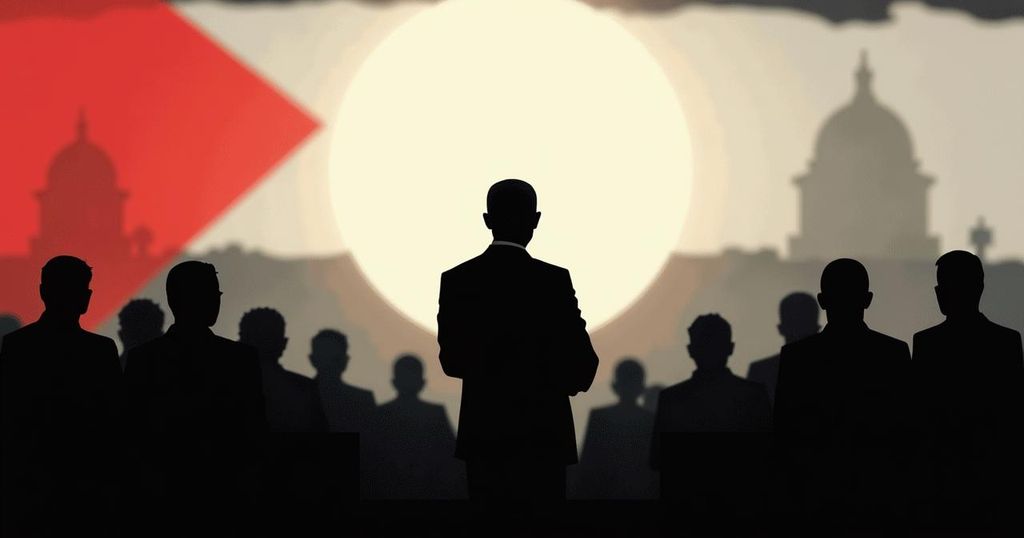During the U.N. General Assembly, Israeli Prime Minister Benjamin Netanyahu articulated a choice between a peace ‘blessing’ and an ‘arc of terror’ led by Iran. He argued for Israel’s commitment to minimizing civilian casualties while confronting threats from Hamas, contrasting his views with Palestinian President Mahmoud Abbas’s calls for cease-fire and humanitarian aid in Gaza. Netanyahu urged global support to curb Iran’s nuclear ambitions and highlighted Israel’s military successes.
Israeli Prime Minister Benjamin Netanyahu articulated a critical decision facing the United Nations General Assembly during his address at the 79th session held in New York City. He presented two divergent futures for the Middle East: one characterized by peace and collaboration, symbolized as a ‘blessing,’ and the other defined by chaos and aggression, dubbed a ‘curse’ stemming from Iranian influence. Netanyahu emphasized the positive potential of a peace agreement that could foster infrastructure links between Asia and Europe, juxtaposing this with the threat of an ongoing ‘arc of terror’ led by Iran, reflecting on past conflicts and the need for international solidarity against such forces. Netanyahu responded to the Palestinian President Mahmoud Abbas’s statements made just prior, where Abbas accused Israel of committing genocide and called for humanitarian aid in Gaza. The Israeli Prime Minister insisted that Israel seeks peace and has made significant efforts to minimize civilian casualties, claiming that Israeli Defense Forces have undertaken unprecedented measures to protect non-combatants while confronting Hamas’s attacks, which he categorized as acts of terror orchestrated by Iran. Emphasizing military successes against Hamas, Netanyahu stated that the Israel Defense Forces have neutralized a vast majority of Hamas’s military capabilities, asserting that Israel remains dedicated to safeguarding its citizens and its hostages. He condemned the hostility directed at Israel at international forums and urged the United Nations to reassess its relationships and policies, particularly concerning Iran’s nuclear ambitions.
The Israeli-Palestinian conflict has long been a focal point of international discourse, with leaders from both sides historically presenting divergent narratives about their roles and responsibilities. This particular address by Prime Minister Netanyahu follows heightened tensions resulting from ongoing hostilities between Israel and Hamas since the October 7 attack by Hamas, which led to significant Israeli casualties and subsequent military responses. The United Nations General Assembly often serves as a platform for leaders to voice their grievances and proposals regarding peace and conflict resolution in the region, making it a pivotal moment for both Netanyahu and Abbas as they seek to garner support for their respective positions.
In summary, Netanyahu’s address at the United Nations highlights a critical juncture in the Israeli-Palestinian conflict, contrasting visions of peace and terror through his ‘blessing’ and ‘curse’ metaphor. While he advocates for Israeli efforts toward peace, he also reinforces a narrative critical of Iranian influence in the region. This discourse continues to reflect the complex interplay of military, humanitarian, and political factors that characterize the ongoing conflict and the international community’s response.
Original Source: www.upi.com







